 | TODAY IN SCIENCE HISTORY
NEWSLETTER - 31 DECEMBER |
 On 31 Dec 1929, Jeremy Bernstein was born, an American physicist, educator and writer widely known for the clarity of his writing for the lay reader on the major issues of modern physics. He was a staff writer for the New Yorker for over 30 years until 1993. Today's Science Store pick is: A Palette of Particles, by Jeremy Bernstein, published in Apr 2013. From molecules to stars, much of the cosmic canvas can be painted in brushstrokes of primary color: the protons, neutrons, and electrons we know so well. But for meticulous detail, we have to dip into exotic hues—leptons, mesons, hadrons, quarks. Bringing particle physics to life as few authors can, Jeremy Bernstein here unveils nature in all its subatomic splendor. On 31 Dec 1929, Jeremy Bernstein was born, an American physicist, educator and writer widely known for the clarity of his writing for the lay reader on the major issues of modern physics. He was a staff writer for the New Yorker for over 30 years until 1993. Today's Science Store pick is: A Palette of Particles, by Jeremy Bernstein, published in Apr 2013. From molecules to stars, much of the cosmic canvas can be painted in brushstrokes of primary color: the protons, neutrons, and electrons we know so well. But for meticulous detail, we have to dip into exotic hues—leptons, mesons, hadrons, quarks. Bringing particle physics to life as few authors can, Jeremy Bernstein here unveils nature in all its subatomic splendor. In this graceful account, Bernstein guides us through high-energy physics from the early twentieth century to the present, including such highlights as the newly discovered Higgs boson. Beginning with Ernest Rutherford’s 1911 explanation of the nucleus. An eyewitness to developments at Harvard University and the Institute for Advanced Study in Princeton, Bernstein laces his story with piquant anecdotes of such luminaries as Wolfgang Pauli, Murray Gell-Mann, and Sheldon Glashow. Bernstein draws readers into the excitement of a field where the more we discover, the less we seem to know. It is available New from $11.32. Used from $7.75. (As of time of writing.). | | For picks from earlier newsletters, see the Today in Science History Science Store home page. | |
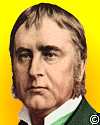 | The road to a clinic goes through the pathologic museum and not through the apothecary's shop. - Sir William Withey Gull, English physician (born 31 Dec 1816).  |
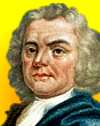 | For chemistry is no science form'd à priori; 'tis no production of the human mind, framed by reasoning and deduction: it took its rise from a number of experiments casually made, without any expectation of what follow'd; and was only reduced into an art or system, by collecting and comparing the effects of such unpremeditated experiments, and observing the uniform tendency thereof. So far, then, as a number of experimenters agree to establish any undoubted truth; so far they may be consider'd as constituting the theory of chemistry. - Hermann Boerhaave, Dutch physician, botanist and chemist (born 31 Dec 1668).  |
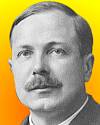 | The evolution of the human race will not be accomplished in the ten thousand years of tame animals, but in the million years of wild animals, because man is, and always will be, a wild animal. - Sir Charles Galton Darwin, English mathematical physicist (died 31 Dec 1962).  |
| Before you look at today's web page, see if you can answer some of these questions about the events that happened on this day. Some of the names are very familiar. Others will likely stump you. Tickle your curiosity with these questions, then check your answers on today's web page. |
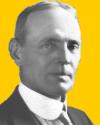 | On 31 Dec 1864, Robert Grant Aitken was born, an American astronomer who specialized in the study of certain stars, of which he discovered more than 3,000. He worked at the Lick Observatory from 1895 to 1935, becoming director from 1930.
 What type of stars did he systematically survey? |
 | On 31 Dec 1514, a Flemish anatomist was born, a university teacher who insisted on conducting detailed dissections on human cadavers personally. His De humani corporis fabrica (On the structure of the human body) provided detailed information for anatomists. He taught Gabriel Fallopius, who in turn tutored Hieronymous Fabricius, who then taught William Harvey. This lineage can be said to have started the modern science of medicine.
 Can you name this anatomist? |
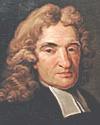 | An English astronomer (1646-1719) established the Greenwich Observatory and was appointed the first Astronomer Royal (1675-1719). He was devoted to astronomical measurement, with the task of accurately providing the positions of stars for use in navigation.
 Can you name the first Astronomer Royal? |
 | Sir Charles Galton Darwin (1887-1962), grandson of Charles Darwin, was an English mathematical physicist, who was director of the National Physical Laboratory (1938-1949). He wrote The Next Million Years, a pessimistic study of the sociological implications of population explosion. From 1953 until his death, he was president of a society espousing a radical solution to population control.
 Of what society was Charles Dalton Darwin the president? |
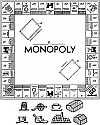 | On 31 Dec 1935, a U.S. patent was issued to Charles Darrow (assigned to Parker Brothers, Inc.). The patent titled it a “Board Game Apparatus” and described it as “intended primarily to provide a game of barter, thus involving trading and bargaining” in which “much of the interest in the game lies in trading and in striking shrewd bargains.” Illustrations included with the patent showed the playing board and pieces and other associated paper and card materials.
 What was this game patented by Charles Darrow? |
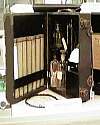 | On 31 Dec of a certain year, the “drunkometer,” the first breath test for car drivers, invented by Dr Rolla N. Harger of Indiana University School of Medicine, was officially introduced in Indianapolis. It was the first successful machine for testing human blood alcohol content by breath analysis.
 In what decade was the drunkometer introduced? |
When you have your answers ready to all the questions above, you'll find all the information to check them, and more, on the December 31 web page of Today in Science History. Or, try this link first for just the brief answers.
Fast answers for the previous newsletter for December 30: Coca-Cola • neutrino • Robert Boyle • Italian, who as a Jew was denied an academic career under Mussolini • blue moon • tungsten. |
 If you enjoy this newsletter, the website, or wish to offer encouragement or ideas, please send feedback by using your mail reader Reply button. If you enjoy this newsletter, the website, or wish to offer encouragement or ideas, please send feedback by using your mail reader Reply button.
Your click on a StumbleUpon, Google+ or Facebook social button on the site webpages is also a welcome sign of appreciation. Thank you for using them. |
To find citations for quotations go to the corresponding webpage by clicking on the “quotes” balloon icon. Sources for the thumbnails appear on today's webpage with the corresponding item.
� This newsletter is copyright 2013 by todayinsci.com. Please respect the Webmaster's wishes and do not put copies online of the Newsletter � or any Today in Science History webpage. (If you already have done so, please remove them. Thank you.) Offline use in education is encouraged such as a printout on a bulletin board, or projected for classroom viewing. Online, descriptive links to our pages are welcomed, as these will provide a reader with the most recent revisions, additions and/or corrections of a webpage. For any other copyright questions, please contact the Webmaster by using your mail reader Reply button. |
--
If you do not want to receive any more newsletters,
Unsubscribe To update your preferences and to unsubscribe visit
this link 






 What type of stars did he systematically survey?
What type of stars did he systematically survey? 
 Can you name this anatomist?
Can you name this anatomist? 
 Can you name the first Astronomer Royal?
Can you name the first Astronomer Royal? 
 Of what society was Charles Dalton Darwin the president?
Of what society was Charles Dalton Darwin the president? 
 What was this game patented by Charles Darrow?
What was this game patented by Charles Darrow? 
 In what decade was the drunkometer introduced?
In what decade was the drunkometer introduced?  If you enjoy this newsletter, the website, or wish to offer encouragement or ideas, please send feedback by using your mail reader Reply button.
If you enjoy this newsletter, the website, or wish to offer encouragement or ideas, please send feedback by using your mail reader Reply button. 

Δεν υπάρχουν σχόλια:
Δημοσίευση σχολίου